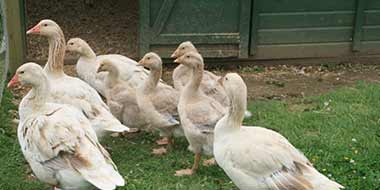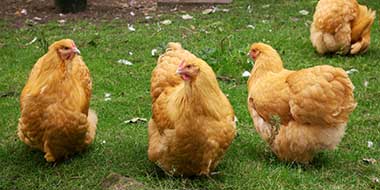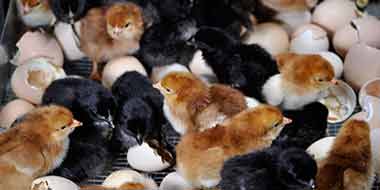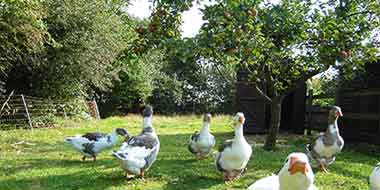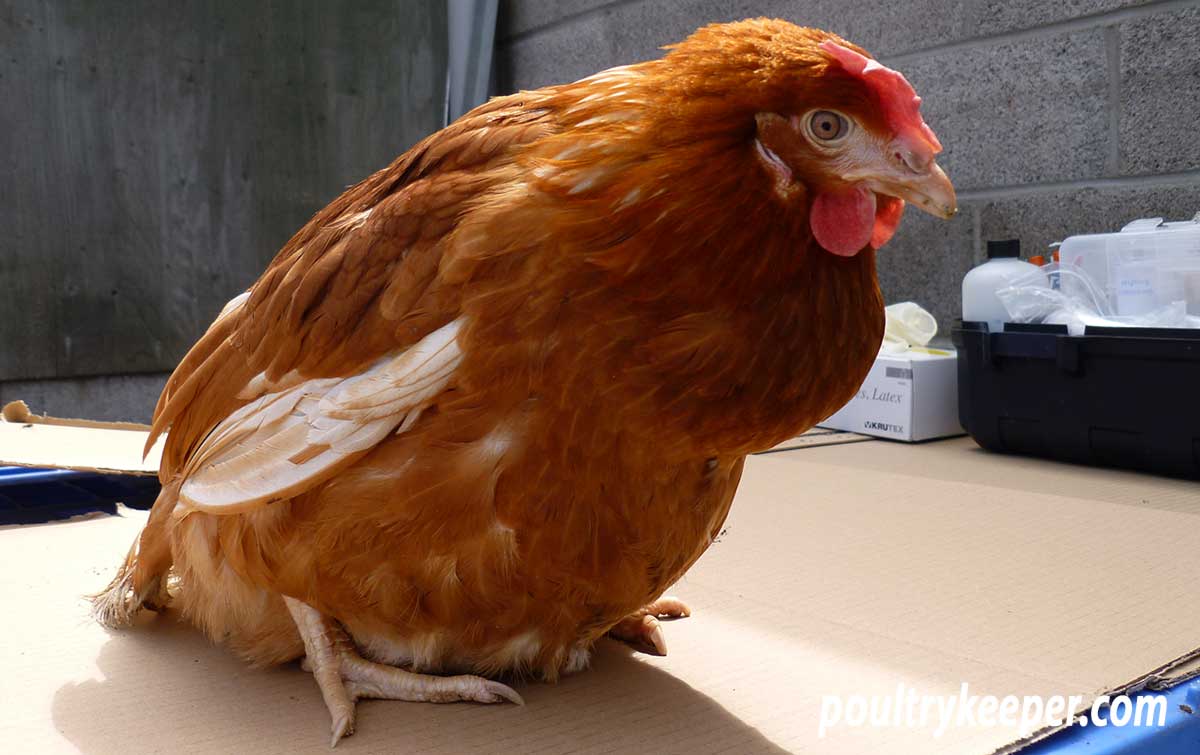
Egg Peritonitis is when the peritoneum (the lining of the abdomen) becomes inflamed due to an infection from bacteria. Peritonitis can occur after a prolapsed oviduct or when yolk goes into the abdominal cavity instead of going down the oviduct and out usual.
The yolk should go into the ‘ovarian pocket’ (the space surrounding the ovary). This often occurs after some viral diseases like Infectious Bronchitis, where the condition damages the reproductive tract. A ruptured intestine can also cause this problem.
Diagnosis
Sometimes a ‘Penguin Stance’ (see the image at the beginning of the page) can indicate an egg bound hen or peritonitis, but more often than not, they don’t show this and may just be swollen around the abdomen, and it is often hard to diagnose this problem whilst the bird is alive.
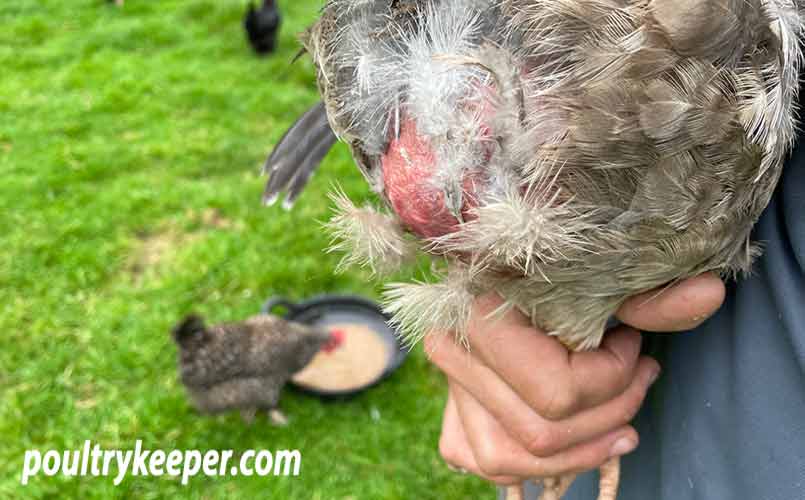
When a chicken’s skin is exposed to sunlight, it naturally turns very red, and although this looks sore, it doesn’t cause them any pain.
The bird can have a blue comb and diarrhoea, but no book I have read seems to believe these are conclusive symptoms. They can indicate many other problems as well.
A post mortem on birds will show an inflamed abdomen, and there will be a very putrid smell with the yolk build-up inside the bird.
Treatment of Peritonitis
Some birds have been treated with antibiotics and had the fluid drawn off but the chances of success are slim and you can often have a big bill at the end of this. It is usually better to have the bird put to sleep, or if you have the experience or have someone to help you, dispatch the bird yourself by using the neck dislocation method.
Recently, vets have been experimenting with Suprelorin Implants to stop hens from laying for a while, giving them a chance to recover.

